During a recent House of Lords debate, Baroness McIntosh of Pickering pressed Defence Minister Lord Coaker on the future of the UK’s fast jet fleet and pilot training programme.
Highlighting the historical importance of RAF bases in her former constituency of the Vale of York, she sought clarity on the Government’s plans for maintaining operational capability.
“Can I press the noble Lord on the number of fast jets that are currently in service and are expected to be in service, say, over the next five years, and also on the number of fast jets pilots that we are training?” she asked. “I hope he will give me some encouragement that we are going to be on track for a number of fast jets going forward.”
Lord Coaker responded by confirming ongoing plans to expand the fleet, specifically mentioning the F-35B Lightning jets.
“We certainly will be purchasing a number of fast jets—the exact number will obviously be subject to debate, but we expect a number of F-35Bs to be purchased.”
On pilot training and retention, he acknowledged the challenges and outlined the Ministry of Defence’s focus on addressing these issues. “The training and retention of pilots is something for which we have an ongoing review within the Ministry of Defence; we are looking at that very carefully, but she is right to raise that as an issue.”
Image Chris Lofting. GFDL 1.2, via Wikimedia Commons.
At the UK Defence Journal, we aim to deliver accurate and timely news on defence matters. We rely on the support of readers like you to maintain our independence and high-quality journalism. Please consider making a one-off donation to help us continue our work. Click here to donate. Thank you for your support!


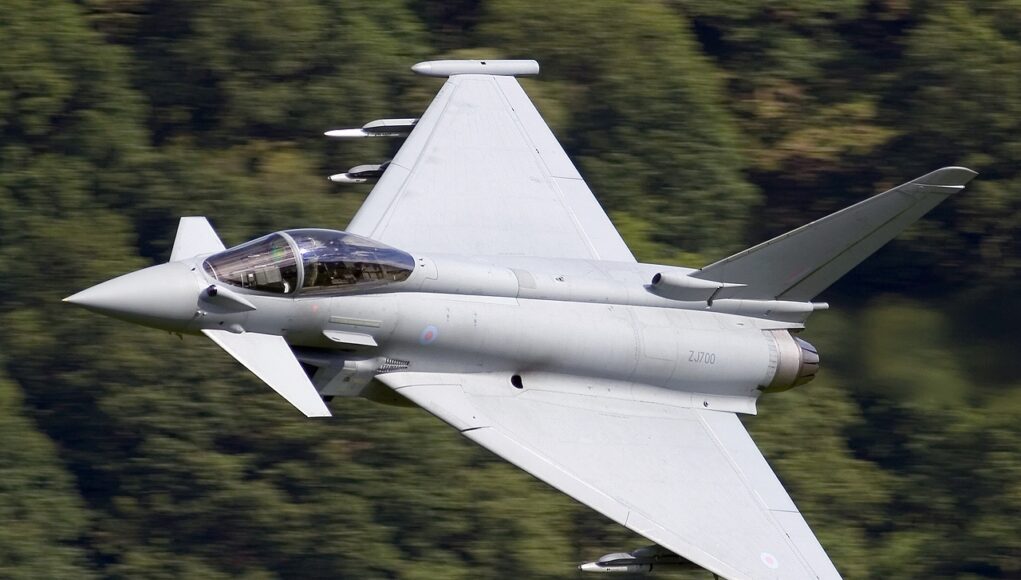

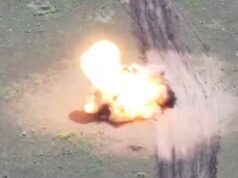
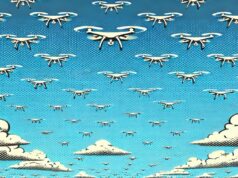
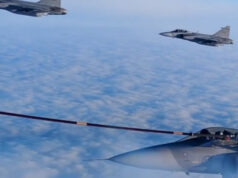
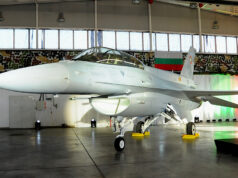
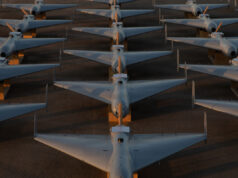
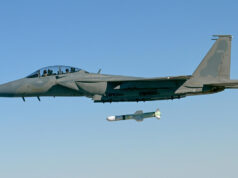
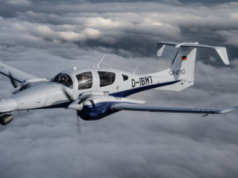
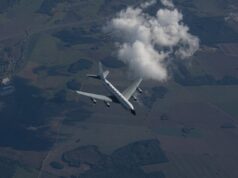
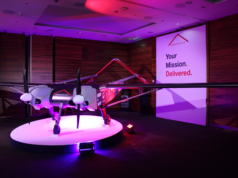

“A number” of F35s, these guys couldn’t answer a question to save themselves
It’s such a non-answer, we’ve already received a number of F-35Bs. Just make their minds up!
SDR hasn’t reported yet, so how can anyone know now how many more F-35s we are buying in the short to medium term?
Not exactly reassuring, could be 27, could be less, certainly not more judging by recent events
0 is a number. As is – 37 (i.e. they all meet the same fate as Albion and Bulwark). Could have at least specified it was a positive number.
Well clever HMG thought it best to replace 340 odd Tucano and Hawk T1 with 9 Texan ( now increased to a whopping 13? ) and 28 Hawk T2, privatizing the system into MFTS, while cutting the long established 1 and 7 FTS and closing RAF Linton in Ouse and it’s satellite airfield, and moving BFT to Valley alongside AFT, when previously both were separate , including I understand using separate chunks of airspace based on the performance of the varied types.
The system worked, but as always fiddle to save a bit of money, privatise all that moves, and see the results as the system falls apart.
Above that, the long term cutting of overall Fast Jet numbers and pilot’s, including QFI, has I read
created a bottleneck at OCU level for those who have passed through BFT then AFT, and the Hawk T2s
engines went wrong.
Another area of defence HMG managed to mess up.
Excellent work chaps!
The Hawk T2 was yet another political industrial fudge, an outdated design that had no future with considerably more advanced Italian competition.
It was yet another politically forced solution the RAF…
A mix of PC21 and one of the advanced Italian trainers (a few to pick from) would have been a good buy.
Pushing forward, I would bring Aeralis into the GCAP fold ,as a trainer etc, for the RAF post 2040.
I conceed the Italians would likely have a melt down!!!
good buy.
I believe Aeralis already get some funds from GCAP as there’s synergies in digital design etc.
Add to the mix EDI initiatives and a dose of woke and you have a perfect storm….quite how our armed services work is beyond me…the nutters are in charge of the asylum…as they say
“White trash” was the quote from the RAF officer re the recruits offered to him.
This remains a white majority country and the bulk of our fighting force is still white working class lads and lasses.
Why alienate with discrimination like that?
The RAF hierarchy got egg on their faces for their DEI policy with Pilot officer recruitment.
Hi Daniele,
Hope you are well.
You have as usual outlined a typical tale of decline brought about short sightedness, political dogma and what has become institutionally accepted shrinking of our armed forces. All of it underpinned by a steady deskilling of the MoD’s support structure, the selling off the research establishments being the most obvious example, but the most damaging process I believe has been the gradual down grading of key project management and support skill sets within the procurement system. Financial controllers, project management and project scrutiny teams have all been undermined making it very difficult for the MoD to control its’ decision making processes. Some of this started when I was still inside the system, but some of this process has been reported since. The MoD is understandably quiet about this type of issue.
The problem is until MoD can reskill its’ people I fear it will struggle to get control of its’ decision making processes and will continue to lack the capacity to effectively resist dogmatic demands from politicians and the Treasury to sell stuff off and reduce scale in the name of efficiency.
This new SoSD appears to be genuine in his desire to improve the lot of our service personnel, although this is somewhat undermined by the ongoing RFA debacle, but whether he has the power within the Cabinet is yet to be seen. I fear that the Chancellor / PM relationship will once again be the driving force in our government’s decisions as it has been for most of my live (the one exception being during the Falklands War when Margret Thatcher excluded the Chancellor from the War Cabinet on the advice of Harold McMillian, I believe).
Given the current geopolitical situation, if I was PM I would set up a ‘War Preparation Cabinet’ and the Chancellor would not be included. This groups’ task would be simple – prepare the nation for war in Europe. Grim, but some of our allies are already effectively doing just that, preparing for war in Europe. Poland being the biggest mover in this direction as far as I can tell. This would develop our defence industrial capability as well as our military forces looking at both short term needs and a longer term strategy to ensure that we are capable of defending our home base effectively allowing us to support our allies in Europe and elsewhere, both militarily and materially.
The development that frightens me the most when I think about it is the deployment of North Korean troops to fight in the Ukrainian War. There are now suggestions that the numbers to be deployed could eventually be as high as 100,000. If so that would make a serious impact o the outcome of the war and would demonstrate the benefits of working together to the new axis of Russia, North Korea, Iran and China. If we do not deter these powers conventionally as well as with nuclear weapons we will end up in a fight and as the war in Ukraine shows it could be a long one, and we are not prepared in anyway to fight a long intense war. However, what frightens me the most about the deployment of North Korean troops is that I believe it is potentially a signal that a war in Europe could be much sooner than anyone has been willing to admit, me included. If nothing else it greatly increases the uncertainty and the risks we face…
Cheers CR
Afternoon mate.
Sobering stuff.
Re the skills base, and your DERA/DRA area.
We know the RRDE, RADE, ARE were closed, but I have always hoped enough residual expertise was retained when DERA became DSTL?
The CBRN area at least was kept going.
It was a complicated process and to be honest 12-15 years later I can’t remember all the details but the majority of the staff were included in QinetiQ. A significant proportion of the dstl staff were Porton Down so not a lot of ‘space’ for other capabilities to be included in the dstl portfolio. The running of the ranges also went with QinetiQ and I believe they were at one time the biggest money spinner for the company. I don’t know if that is still the case.
The original justification behind the sale was to improve the exploitation of the research capabilities and technological know how of the people in QinetiQ for the benefit of UK plc. However, without a manufacturing capability that was not straight forward and it proved hard to ‘sell’ research as a product… So I think the business has moved away somewhat from research and has developed services and products along side other companies. Research streams that did not have the promise of sales were quietly ‘dropped’ i.e. staff redundancies. QinetiQ got rid of 10 to 15% of its’ staff in two big cycles. I went in the second round.
I think the main impact will have been the loss of knowledge to the MoD making it increasingly difficult to manage complex procurements. With the loss of financial management capabilities, project management and technological knowledge MoD has probably lost much of its’ intelligent customer potential. Please note I say ‘potential’… having skilled and knowledgeable people working for you only has a positive impact if the ‘grownups’ listen… I have my doubts about the listening part of the process to be honest.
The fact is retraining and replacing what was lost, our people, civilian and military, will take time, a long time. I don’t think we have the time any more.
As a country too many people from the top to the bottom think that war can’t possibly happen to us again. Putin has played a clever game or he was just lucky. Fighting wars within the boarders of the old Soviet empire was seen as something that didn’t affect us ignoring the fact that a war in a far “away country” (1) did indeed come to impact us. He has gradually upped the anti and got away with it. Ukraine is such a noisy elephant I am staggered to find that our leadership isn’t responding more robustly and educating the general public of the risks and why they are taking much needed action. If Poland can respond, we can and should. If our leadership don’t start reacting soon, Putin will mate a risk too far and our gapped capabilities will be exposed and it will be the innocent who pay the greatest price…
I genuinely think we have far less time than we thought we had even just one year ago. I am not saying that war is definitely going to happen but the risks that it could happen within the next 5, 10 or 15 year timescales have dramatically increased. Up until now I have figured on a few decades before the risks got this bad but North Korean troops in Europe changed that for me. A new Axis now exists with two members signed up and two others providing support.
I haven’t commented much on the loss of the LPD’s, but I think it is a serious mistake. Royal Marines being lifted into North Norway is one of our key responsibilities to NATO which is now very much in doubt and given my perception of the risk profile above I think it is a gamble way too far. It certainly sends the wrong signals to Putin who has surrounded himself with yes men who will be quick to point to this latest set of decisions as a sign of weakness.
All very depressing.
Hopefully I am wrong.
CR
(1) Taken from a quote by Neville Chamberlain
I wonder what messages / briefings have been given to the new ministers and SoSD in particular…surely they would have been warned of the risks in the strongest terms or is that the MoD / Civil Service simply cannot perceive the risks? I suspect the latter.
Yes, HMS Fearless & Intrepid had been ignored for years but still did sterling service in the 1982 Falklands conflict. If the UK gets rid of its LPDs without replacement, we should at least offer Norway a permanent RM base there.
A good detailed read CR, cheers for the piece!
Why not prepare for the cold war Russia is already fighting and has been doing for several years now. It just increases the chance of Russia thinking it can expand the war in Ukraine to other countries
People wonder why the NK blew up all the roads through DMZ to SK……………then start send troops to Russia. Now just 1 big minefield to protect the border and few up units.
Don’t forget that they picked a version of the Texan that wasn’t certified to fly over water, a bit of a problem if you are based on Anglesey.
Yes, not so vital with designated FTAs in Yorkshire.🙄
340 Tucano/T1. Is it a fair comparison? I would say not. The obvious point being that there are less airframes to fly on the front line. But it’s been 14, not 13 Texans for several years. And they all fly at a high serviceability. I see them on radar. There a 22 actually serviceable Hawk T2 at Valley atm, as far as I can tell on ADS-B – and with engine probs still not completely resolved means there 6 more to get back in service at some point.- and however many at Leeming (these are Mk168, which are different a bit from T2s), (does anyone know the correct figure, not a guess?) They have just turned out the first RAF pilots to graduate as well as training Qatari pilots. Importantly the pilots being trained in the US and Italy bring a whole new dimension which is good. Also the syllabus is very different from 20 years ago and I guess streaming for helicopters and multi-engined happens earlier? Can anyone confirm? But we could be training more ourselves – and also for other NATO countries. It only needs money.
Not that many, I was including the Hawk T1, and was corrected, Tucano was 130.
14 rather than 13? Thanks, even so though, wooo hoo, so so few.
22 out of 28 Hawk seems an excellent ratio.
I don’t know how many 11 Sqn have, no.
I always thought streaming for multi engined and Helis happens after EFT, and the fast jets stream go BFT then Hawk, but I may be wrong.
Not ceritified to fly over water. What does that mean? In fact, of course, they spend a lot of their time of the Irish Sea! So they must have learned to overcome their fear water..
Did we really need as many as 340 Tucanos?
Graham, that figure I got to by adding the RAF Hawk T1 and Tucano orders, which, without checking for the exact number, were by memory about 170 each.
No, that was a Cold War level of pilot training. The system worked.
What we have now is ridiculous.
I did not include EFT – Elementary Flying Training at the DEFTS and the RAF UAS or the DHFS as AFAIK they work.
I get the feeling with a few senior soldiers running the shop for a few years with “democracy” on hold until a proper Constitution was written and general draining of a stinking swamp, we would be in a far better place to address the important stuff. Politicians have turned our country into a joke.
Sorry your Generals all stayed very quit to save their pensions and what ever. They are part of the swamp.
Did we really need as many as 340 Tucanos?
See above mate.
It was 130 purchased and many went into storage so about half the fleet was flying at any one time. Now all gone but a few heading State Side. Many had plenty hours left on them and a cockpit update would have been the best way forward which would have delivered as good an aircraft as against a new type altogether. Private services always in the end barely deliver what is asked for and never have flex to increase quickly. Thank goodness we are surrounded by water to defend us. But we can hardly control the waters of the Channel as we can all see. Nelson will be spinning in his grave.
It seems like this current government has contributed to putting the knife in the back to our military service,why even consider SDR it’s ridiculous to the extent of madness,the government has no idea the knock on effect SDR has not just to the military,but to the whole forces community. Please look other countries in the NATO group to see how other governments carry out there own political gains.
I thought the general idea was to stop buying aircraft. Hence you reduce the need to train anyone, and save lots of cash. Someone gets a nice big bonus for that idea. Nice.
The question was quite weak, intended to give the same snout in the trough recipient an option to supply a weak and vague answer. Defence is getting worse, as are our elected (and house of lords unelected) reps, who continue a great tradition of absolute lack of subject matter knowledge and care. The world is getting a bit more shitty, we need to up our game somewhat.